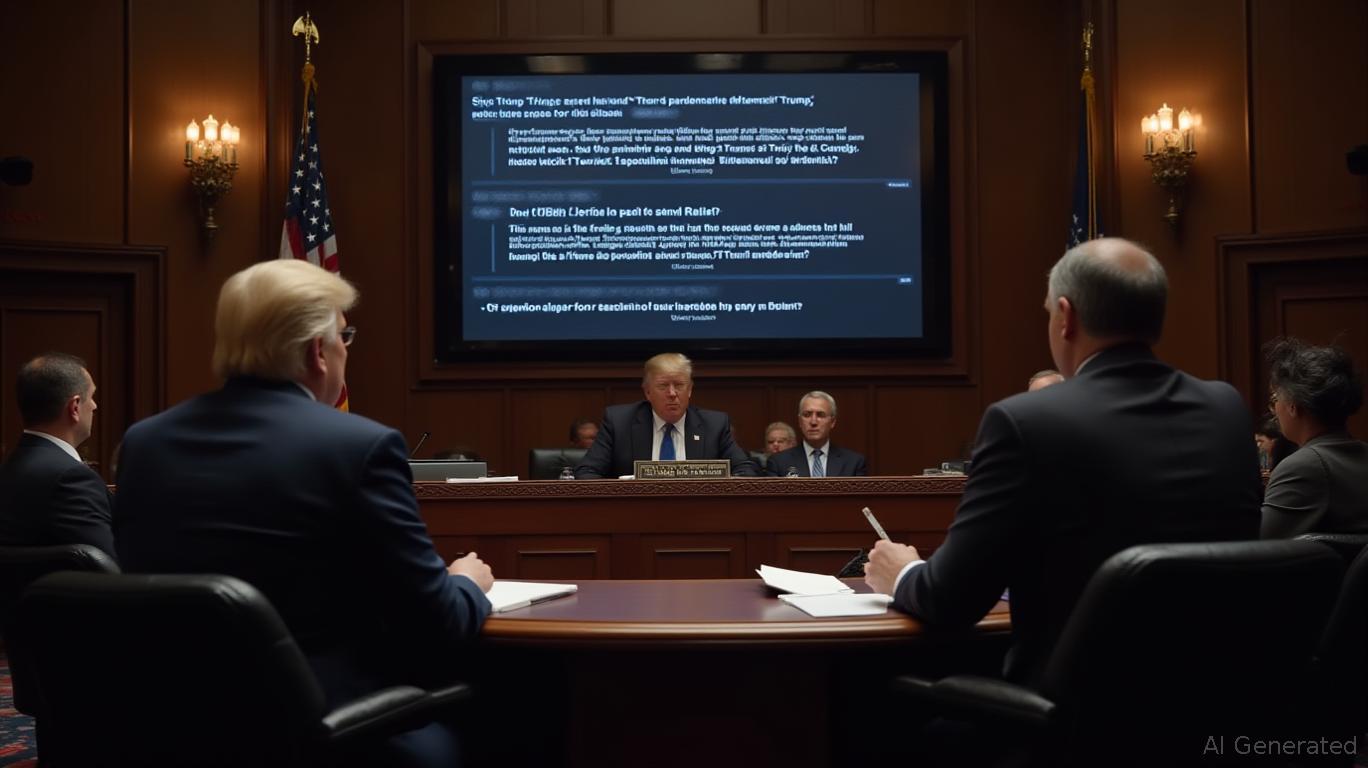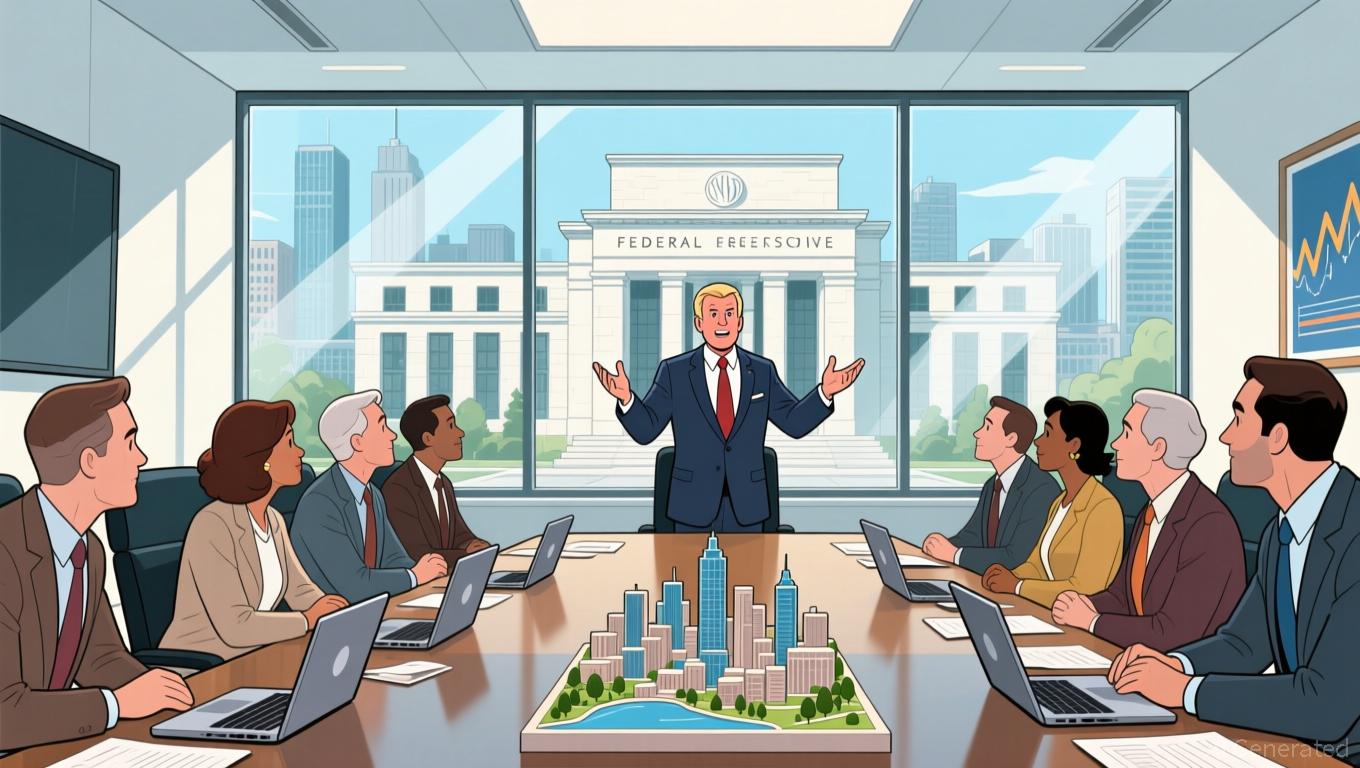Senate Seeks Clarification Regarding Trump's Alleged 'Pardon for Payment' Cryptocurrency Scandal
- Senate Democrats demand transparency over Trump's pardon of Binance founder Zhao, calling it a corrupt favor to a "white-collar criminal" who funded Trump-linked ventures. - A Coinotag report reveals Binance spent $740,000 lobbying Trump associates before the pardon, including payments to firms tied to Trump Jr. and ex-SEC officials. - Critics argue the pardon risks enabling a "pay-for-pardon" system, with experts warning it sets dangerous precedents for crypto lobbying and regulatory capture. - Binance'
Senate Democrats are demanding transparency regarding President Donald Trump's decision to pardon Changpeng Zhao, the founder of Binance, arguing that the move amounts to a corrupt gesture toward a "white-collar criminal" who directed millions to Trump-related interests. In a
Zhao, also known as CZ, admitted guilt in 2024 to breaching U.S. anti-money laundering regulations and served four months in prison. His pardon, announced on October 22, followed renewed lobbying efforts by Binance during the Trump administration, with $860,000 spent in 2025 alone—adding to over $1 million spent in 2022, according to the report. The senators pointed to intertwined financial connections between Binance and Trump’s crypto initiative,

The political controversy has grown as Trump’s pro-crypto stance faces increased examination. Binance.US recently started offering WLFI tokens, a move Democrats cite as proof of regulatory capture in
Analysts caution that this situation highlights weaknesses in the U.S. pardon system and the sway of financial interests in politics. "This creates a troubling precedent," a federal lobbying expert commented, noting that crypto companies are expected to increase lobbying spending by 25% in 2025 due to ongoing regulatory ambiguity, as noted in the Coinotag report. The senators’ letter calls for clarity on whether Trump’s connections to Binance—including possible earnings from WLFI—played a role in his decision. As the crypto industry faces shifting regulations, the pardon has renewed discussions about oversight, with lawmakers advocating for changes to limit political influence over pardons; these concerns were initially outlined in the Cointelegraph letter.
Disclaimer: The content of this article solely reflects the author's opinion and does not represent the platform in any capacity. This article is not intended to serve as a reference for making investment decisions.
You may also like
Bitcoin Updates: Michael Saylor Continues to Acquire BTC Despite Market Slump, Holdings Remain Robust
- Michael Saylor's MSTR added 8,178 BTC ($835.6M) in November, boosting total holdings to 649,870 BTC valued at $48.37B despite Bitcoin's 7-month low below $95,000. - Strategy's BTC purchases remain profitable with average cost ($74,433) far below current $90K+ price, while unrealized gains persist through market downturns. - Saylor defends Bitcoin as "exponential treasury asset," rejecting sell rumors and hinting at "surprising" activity despite MSTR's 35% YTD stock decline and below-1 market-to-NAV ratio

Panic or Opportunity? As Legal Challenges and Economic Uncertainty Converge, Crypto and Stock Markets Waver
- Crypto markets hit "extreme fear" as Bitcoin's $100k failure sparks broad sell-off, compounding equity turmoil from lawsuits and leadership crises at Primo Brands and WPP . - Primo Brands drops 9% after CEO forced out over integration failures, now faces securities class action; WPP plunges 18% amid fraud allegations and CEO transition. - Fortinet's 22% stock crash follows delayed firewall upgrade disclosure, triggering legal scrutiny; Whirlpool reports strong earnings but remains down 38.7% year-to-date
Trump’s Federal Reserve Strategy: Hassett’s Proposed Reductions Face Resistance from Central Bank Prudence
- Trump plans to nominate Kevin Hassett as Fed chair, prioritizing aggressive rate cuts over Powell's cautious approach. - Hassett's market-driven policies face political risks, with internal resistance warning against destabilizing Fed independence ahead of 2026. - Fed officials remain divided on rate cuts, balancing inflation control against weakening labor market signals. - Critics argue Trump's focus on short-term cuts risks inflation, while Bessent's post-Thanksgiving recommendations will shape U.S. m
